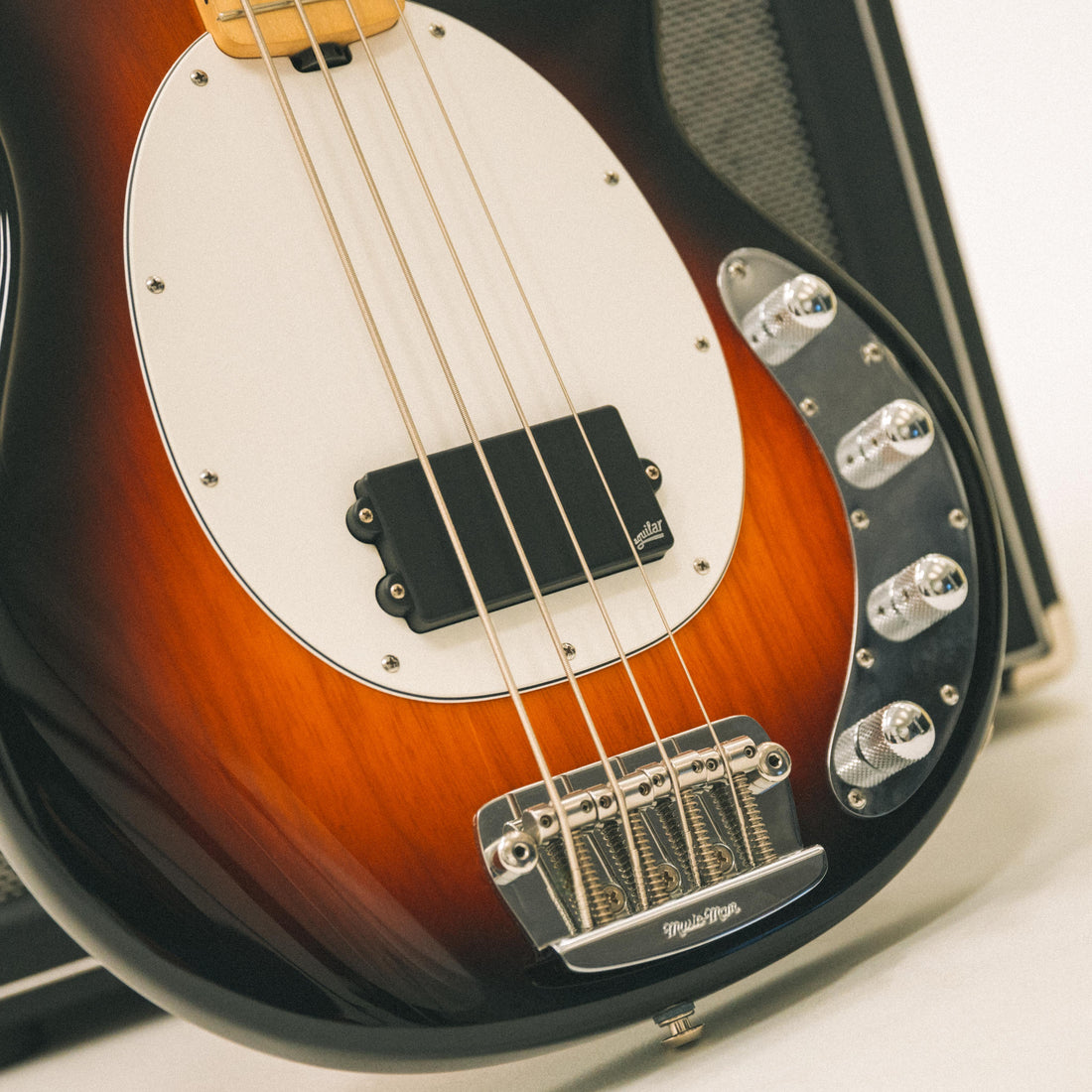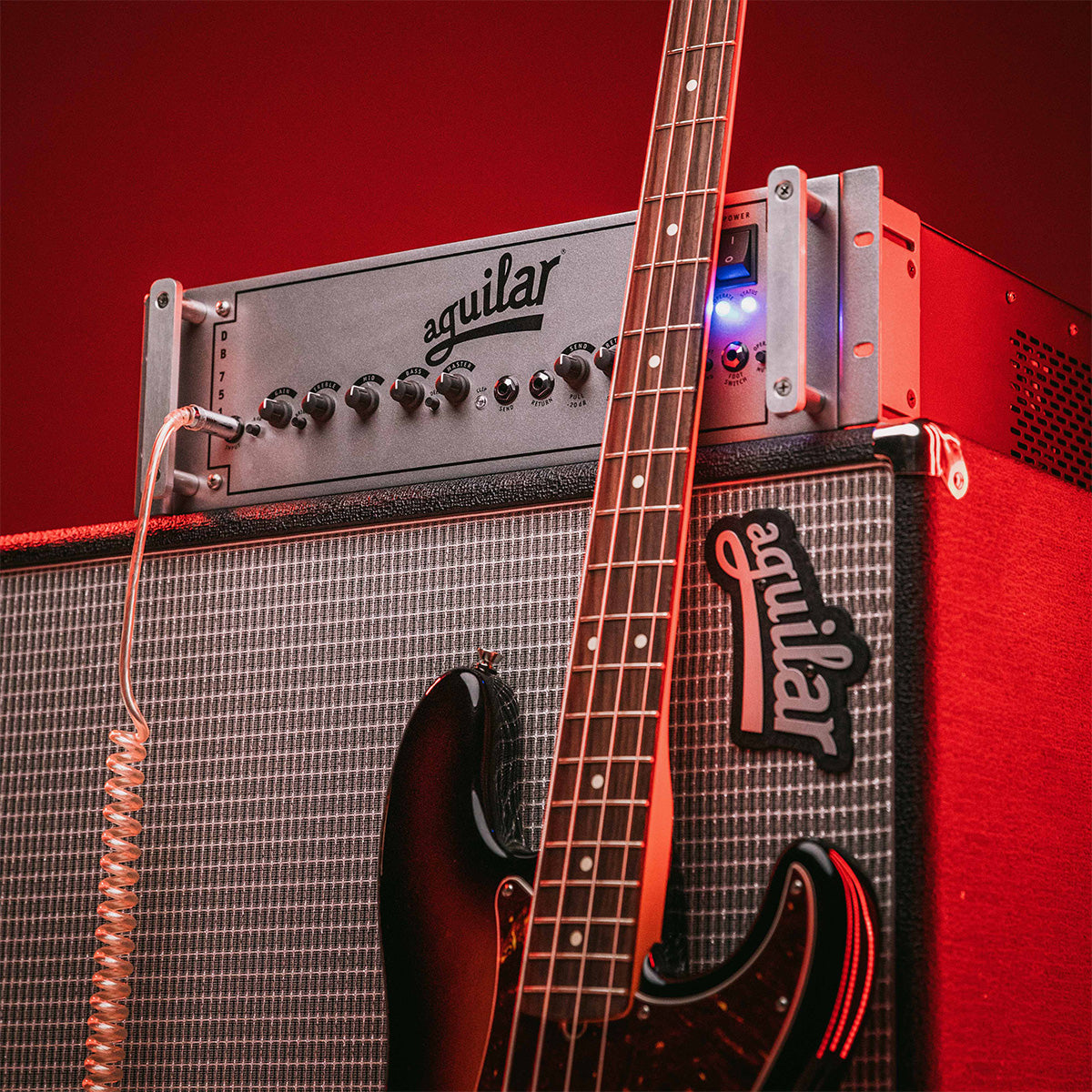
You only have 30 minutes left of your lunch break, but you still have a handful of errands to complete. As you hurriedly look at the to-do list on your phone, your eye is drawn to your favorite, downtown music store. Your inner voice is screaming “No! We do not have time for that!” but you ignore it. You feel as if a tractor beam is pulling you to the front door of the store. Once inside you notice a solitary sunbeam is leading your eye from the store’s large display window to...a bass that is hanging on the wall.
But not just any bass.
THE bass.
You pull it down and plug it into the nearest bass amp while your heart beats like the epic climax of a Neil Peart drum solo.
All your senses revel in playing this bass! From its tone, feel, weight, color, and balance this is your perfect bass! You throw all your credit cards, your car keys and your library card at the sales associate and run out of the store, hugging your new bass to your chest as if it was an old friend that you had not seen in decades.
While the above story sounds awesome, it is a very rare occurrence. In fact, it has never happened to me, and I have been playing bass for over 40 years now. Every player is unique, so it is unrealistic to think that a bass will fit the needs of your inner musician unless you have it built from scratch.
So, should you just give up looking for your dream bass?
Not at all!
While you might not be able to find your perfect bass hanging in a store somewhere, it is highly likely that you will find a bass that is close. In fact, your perfect bass might just be a few tweaks away! This has happened to me more times than I can count, so I can speak from my personal experience. Customizing your bass to your musical personality is not only possible, it is fun!
When shopping for a new bass I look for one that feels good to play, with a nice weight and balance, and neck, fingerboard and body woods that I like. It is not a deal-breaker if the sound of the bass through my favorite amp is not ideal because I know that I can make certain mods that will help me get the tones I am looking for from the basses I play.
Here are some mods for you to consider that can make a huge impact in crafting your perfect bass:
THE BRIDGE AND NUT:

One of the most often overlooked mods that can have a massive impact on a bass’s tone and playability are the bridge and nut. If a bass has a mellow tone and I want something more piano-like I will often swap out the nut for a brass one. Or if the bass does not sustain like I want I will install a high-mass bridge. I happen to like a certain action on my basses so I am drawn to a certain bridge and nut combo that I know will have the adjustability I need to fit my bass set-up preferences.
THE PICKUPS:

One of the first mods I will make on a new bass that I buy is to swap out the pickups. Much like a singer or recording engineer has his or her favorite microphones, I have a selection of pickup models that I trust will give me the sounds that I like. This is not to say that all your basses need to have the same model of pickup. Through experimentation you will find pickups that you like for a certain genre of music, playing technique or even type of bass (ie: fretless, multi-scale, etc.).
THE ONBOARD PREAMP:

Sometimes I find a bass that comes with pickups that have a sound I like, but I want more tonal flexibility. In those cases I install an active, onboard preamp, like Aguilar’s OBP-3. Some onboard preamps have boost-only tone controls, while others have boost and cut tone controls, and it will be up to you to decide which will be better for you and that bass.
Finding the bridge, nut, pickups or preamps that will work best for you is not an impossible task. It just takes a little research and experimentation. Fortunately, we live in an age where this is much easier to accomplish than it used to be when I first started playing. My best suggestion is to find a music store employee and/or a guitar repair person who you can talk to about mods. Be respectful of their time, however, and if they help you find just the right mod, please buy it from them. Don’t be a dink.
You can also do a little online searching, looking for components that your favorite players use. In some cases you can message the player directly via social media and get their recommendations. Once you have identified, say, a pickup that you are interested in, you can usually find online video and sound samples that have been helpful in my own research. The best way to combat nervousness and indecision when it comes to modding your bass is to dig deeper. Visit manufacturers’ websites, read reviews, watch shootout videos, and even see if you can find a bass with that component in your local music store and go play it. The information is out there. You just need to find it!
I am often asked if a player should do the mod themselves or if they should take it to a repair person. There is no one-size-fits-all answer that I can give. It really boils down to your confidence and skill in doing such work. If you are up for it, there are a plethora of online resources that can help walk you through the modding process. If the thought of doing this kind of work gives you the shivering fits you should seek out a qualified guitar repair person and hire them to do the work for you. There is no shame in that! (Full disclosure: I hate soldering, so I always take my bass to my favorite local luthier to do such work for me.)
One thing that I think every bassist should consider doing at some point in their journey is to build a “parts bass” for themselves. This means finding a bass body and neck that you like and can afford, and then assembling it with your favorite components. This is the best way to really understand how a bass works and the part each components plays in its tone and playability. It is a treasure trove of information while being a whole lot of fun at the same time!
If your current bass is not quite delivering the sound you “hear” inside your head, I hope this article has given you the confidence to mod it. Why wait for a sunbeam to direct you to your dream bass when you can mod it into existence yourself!
Story by Dale Titus
_______________
Dale has been a professional bassist for 40 years and during that time was an instructor/counselor at the Bass Institute of Technology, a freelance writer for Bass Player magazine as well as the Editor of Bass Frontiers magazine. He also released The Ultimate Beginner Series for Bass videos and book for Alfred Publishing, as well as the Everything Bass YouTube channel.


3 comments
Hi, i just ordered an Aguilar OBP2SKSET 2-Band Boost/Cut On Board Bass Preamp and unfortunately the seller does not have any knobs to fit the consentric pot . Can you please tell me if you can sell me one , or where in Canada i could buy one, the is one place in the USA but the delivery service is stupid , between 45 $ and 72$ usd.
Hope you can help me , this is my first time using Aguilar products and i am looking forward to get some more great stuff ans Aguil;ar is the most likely to be my first choice.
Thank you
can you explain ?
Great advice Dale!
I like how you mentioned setup in the bridge & nut upgrade section. I would advise to any new players with a new bass, to consider a professional setup as a first “upgrade”. It can definitely improve your bass AND your playing!